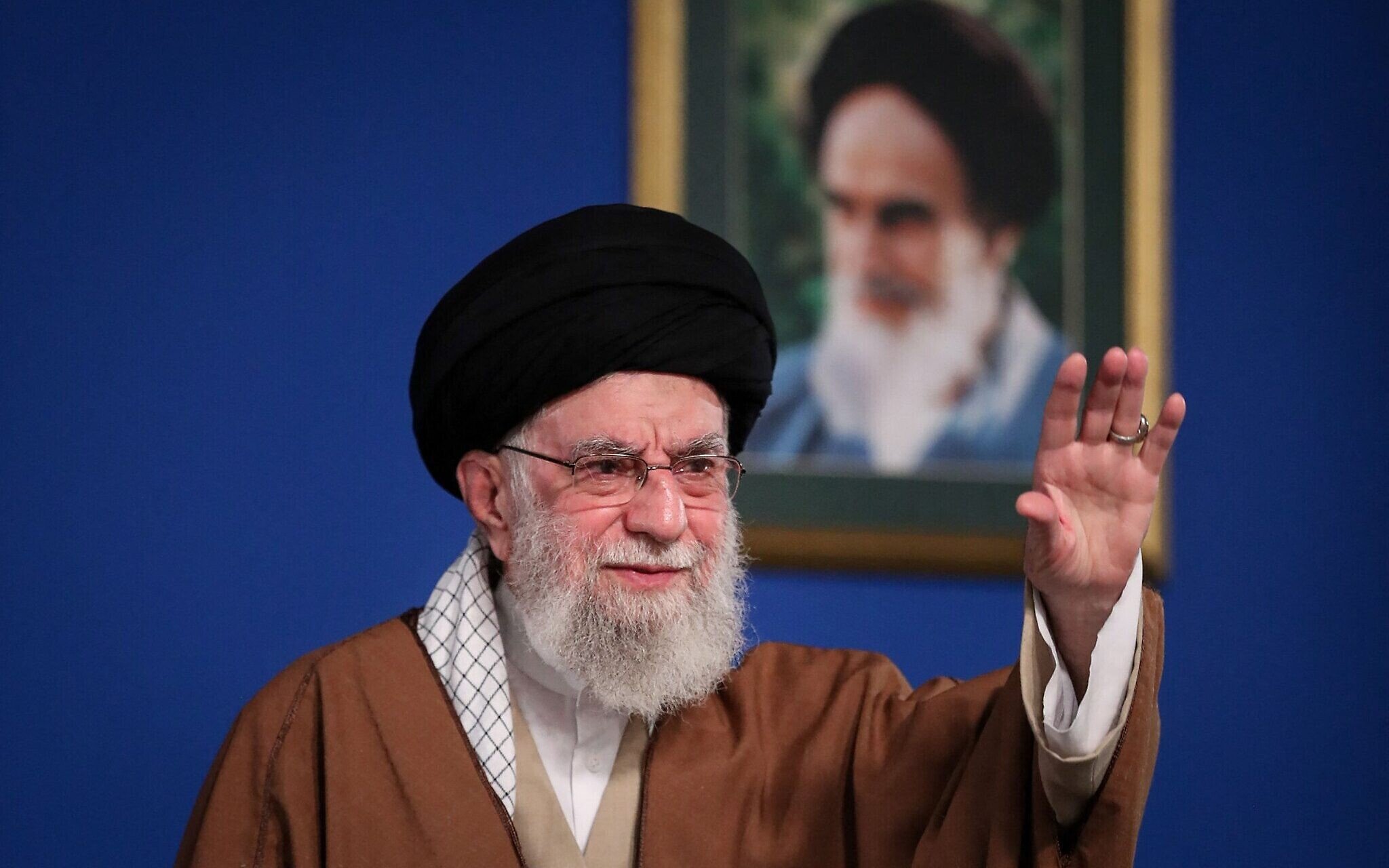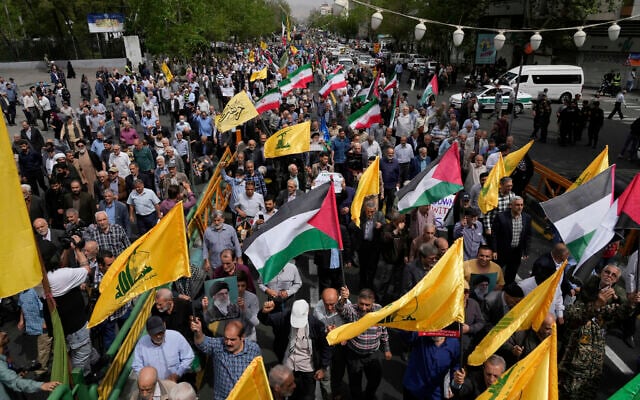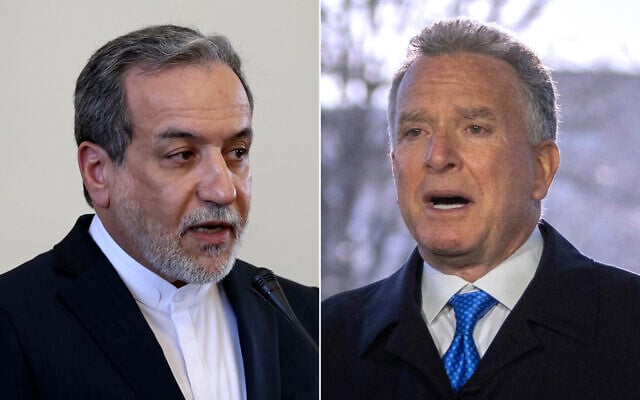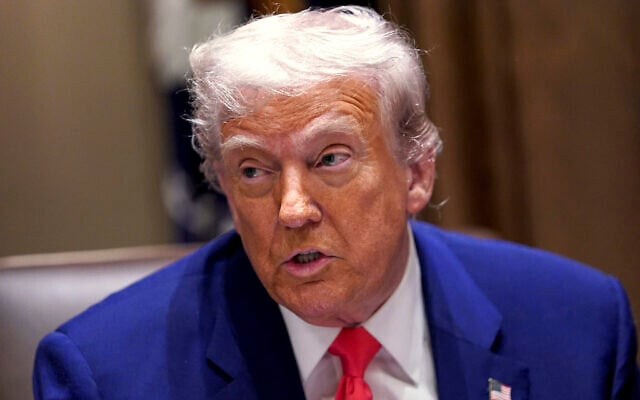



In a rare intervention, Iran’s Supreme Leader Ayatollah Ali Khamenei was urged by his top officials to allow negotiations with the United States on the regime’s nuclear program or risk the fall of the Islamic Republic, The New York Times reported Friday.
The US and Iran are set to meet in Oman on Saturday for talks over Tehran’s rogue nuclear program.
According to The New York Times report, which cited two senior Iranian officials who are familiar with the details, Khamenei held a meeting last month attended by heads of the judiciary and parliament. Those officials, in what the sources described as an unusual, coordinated effort, pressured Khamenei into accepting talks with Washington, even direct ones.
They told Khamenei that the threat of military action by the US and Israel against its nuclear sites was serious. The country, already in economic shambles, would be forced to respond, but then would also likely be plunged into domestic unrest if it were to go to war, they said.
The combination of such events would amount to an existential threat to the Islamic Republic, the officials reportedly told Khamenei.
Iran previously rejected talks but has since relented amid US President Donald Trump’s threats.

The US has vowed not to allow Iran to obtain a nuclear weapon, and Trump has repeatedly threatened “bombing” and a “very bad day for Iran” if no agreement is reached to prevent it.
Iran, which is sworn to Israel’s destruction, denies seeking a nuclear weapon, but it has ramped up its enrichment of uranium to 60 percent purity, which has no application beyond nuclear weapons, and has obstructed international inspectors from checking its nuclear facilities.
Iranian officials said Friday that the Islamic Republic is giving the talks “a genuine chance,” and that, if there are not further “threats and intimidation from the American side, there is a good possibility of reaching an accord.”
The talks on Saturday will be led by Foreign Minister Abbas Araghchi and US special envoy Steve Witkoff, with Omani Foreign Minister Badr al-Busaidi as intermediary, according to Iranian state media.
Trump has characterized the talks as “direct,” while Iranian officials have insisted they will be “indirect.”
Khamenei adviser Ali Shamkhani said in a post to X on Friday that Araghchi was heading to Oman “with full authority for indirect negotiations with America.”
“Tehran seeks a real, just deal—away from media show and rhetoric. Key proposals are ready. If Washington shows determination for a deal, the path to agreement will be clear,” he wrote, in a message posted separately in Farsi, English, Arabic, Russian, and Hebrew.
The Iranian foreign ministry said on Friday the US should value the Islamic Republic’s decision to engage in talks despite what it called Washington’s “prevailing confrontational hoopla.”
The ministry’s spokesman, Esmaeil Baqaei, said Iran was “giving diplomacy a genuine chance in good faith and full vigilance,” adding, “America should appreciate this decision, which was made despite their hostile rhetoric.”
In the lead-up to the talks, Trump reiterated his warning that military action was “absolutely” possible if talks failed.
During his first term, Trump withdrew from a 2015 deal between Iran and six world powers — the US, Russia, China, France, Britain and Germany — and also imposed stiff sanctions. Iran responded by dropping some of its commitments to the deal, known as the Joint Comprehensive Plan of Action.
Hardline media in Iran voiced skepticism on the talks.
For example, the Kayhan newspaper ran editorials warning that new sanctions imposed this week showed the United States was “an enemy of Iran and its people” and dismissed negotiations to lift sanctions as a “failed strategy.”
Reformist media outlets struck a more optimistic tone, emphasizing the potential economic and investment opportunities talks could create.
Witkoff, expected to lead the American negotiation effort, visited Russia on Friday for talks on Ukraine with Russian President Vladimir Putin, an ally of Iran.
Expert-level consultations between Russia, China and Iran on nuclear issues took place in Moscow on Tuesday, according to the Russian foreign ministry.
Iran has in recent months also been talking with the three European signatories of the 2015 nuclear deal, namely France, Germany and Britain.
On Friday, Germany urged the two sides to reach a “diplomatic solution,” adding that it is a “positive development that there is a channel for dialogue between Iran and the United States.”


